
|
GCOOS is the Gulf of Mexico regional component of the U.S. Integrated Ocean Observing System (IOOS). Our mission is to provide timely, reliable and accurate information on the open and coastal ocean waters of the Gulf of Mexico to ensure a healthy, clean, productive ocean and resilient coastal zone.
|
|
|
|
March 2017 - In This Issue:
|
|
|
|
|
Greetings!

What a March that was... a congressional briefing in Washington, D.C., the State of the Gulf Summit, the Gulf of Mexico Alliance All Hands Meeting and the Gulf workshop on International Research. Whew!
GCOOS staff participated in each of these meetings, carrying the message forward about the need to invest in ocean observing tools for the Gulf -- in fact, data collection and dissemination are more important than ever, so we can both understand what's happening generally in our natural systems and monitor changes over time in the wake of the Deepwater Horizon Oil Spill. There is broad consensus that ocean observations are critical in the Gulf of Mexico and we continue to seek additional funding for sustaining our current tools and adding new coastal and ocean sensors in the Gulf.
We also hosted our annual members meeting in New Orleans and completed our annual GCOOS Board elections. Welcome back to our returning members: Steve Buschang, Dave Driver, Sara Graves, Nancy Rabalais and Joe Swaykos.
I'm also pleased to welcome new members
Kirsten Larsen and
Dr. Ed Kearns to the board as representatives of the government sector and I'd especially like to thank Pat Roscigno, of BOEM, for his many years of service and dedication.
While the whirlwind of activity we just experienced may have felt at times like it was going to blow us over, the Gulf hurricane season is really just beginning. Please consider sharing any interesting tidbits about your ocean observing work with us as hurricane season progresses -- our Facebook followers all love good weather stories! You can email details about that or any other topic you'd like to share with our audience to [email protected].
Until next month!
|
|
|
Nadine Slimak, Public Relations & Content Marketing, Vetted Communications, LLC
|
|
|
|
Welcome New GCOOS Members
|
 GCOOS welcomed four new voting members representing marine-related industries during our Annual Meeting in New Orleans. GCOOS staff and grantees also provided activity highlights from the last year. GCOOS welcomed four new voting members representing marine-related industries during our Annual Meeting in New Orleans. GCOOS staff and grantees also provided activity highlights from the last year.
"We've had an extremely busy and successful year," said William Lingsch, Chairman of the GCOOS Board of Directors. "The data GCOOS and its partners provide supports the tools and technology that help protect public health, ensure emergency preparedness, safe and efficient navigation and jobs tied to the blue economy. For instance, this year, our members provided critical data during record rainfall that led to major Louisiana flooding and investigated the unusual die-off in bottom-dwelling organisms in the Flower Garden Banks off the Texas coast. GCOOS also plays a critical role in gathering and disseminating data about ocean weather conditions and monitoring things like the annual hypoxic zone at the mouth of the Mississippi River. The positive outcomes and impacts from the information that GCOOS provides and how the data improves lives on the Gulf coast are numerous."
Welcome to:
CB&I Coastal and Maritime Services, Fototerra Aerial Survey, LLC, Horizon Marine-CLS and JASCO Applied Sciences USA, Inc.
- Learn more about these companies and details about the meeting.
|
|
|
GCOOS Board Election Results
|
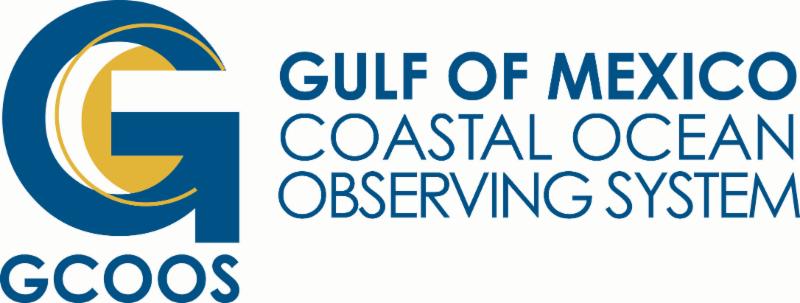 The Gulf of Mexico Coastal Ocean Observing System (GCOOS) welcomed new and returning members to its Board of Directors following Board elections in March. The Gulf of Mexico Coastal Ocean Observing System (GCOOS) welcomed new and returning members to its Board of Directors following Board elections in March.
The Board helps to set GCOOS policy and revises bylaws and other documents. Directors also help guide the organization's business model, approve the budget and, at members' requests, endorse submitted proposals as needed. Board terms are three years and Directors are not paid. Board members are nominated by the Gulf ocean observing community and are chosen by votes cast by GCOOS Members.
Welcome to:
- Kirsten Larsen (governmental sector representative): Lead Oceanographer for NOAA's National Centers for Environmental Information in Mississippi (NCEI-MS) and the Science Advisor for the Coastal Data Development Program.
- Dr. Ed Kearns (governmental sector): Director for NOAA's Big Data Project, and acting Chief Data Officer for NOAA, on detail from NOAA's National Centers for Environmental Information (NCEI) to the NOAA Office of the Chief Information Officer.
Re-elected Board Members:
- Steve Buschang (governmental sector), Texas General Land Office
- Dave Driver (private sector), BP America, Inc.
- Sara Graves (outreach & education sector), University of Alabama Huntsville
- Nancy Rabalais (academia), Louisiana State University
- Joe Swaykos (outreach & education sector) NOAA National Data Buoy Center
|
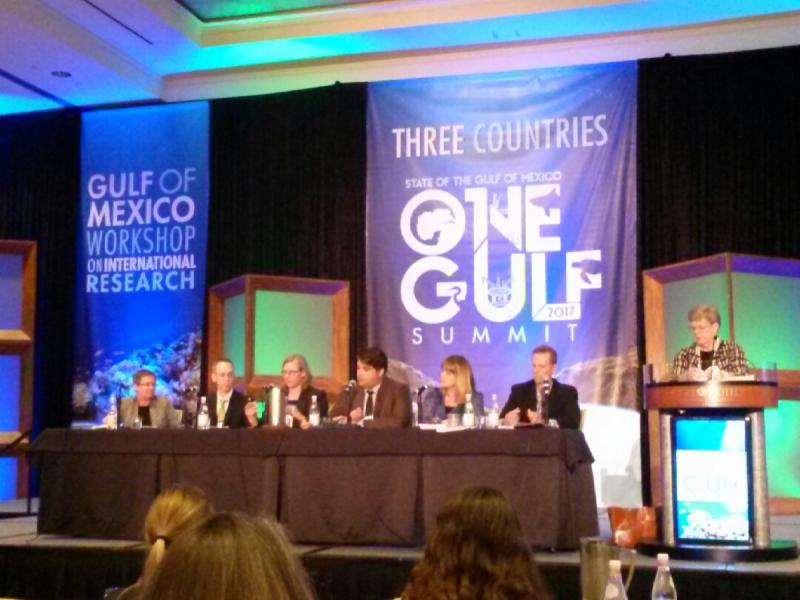
The Gulf of Mexico Alliance teamed up with the Harte Research Institute for the joint meeting of the State of the Gulf of Mexico One Gulf Summit 2017 and the 2017 All Hands Meeting. Both meetings were held back to back the week of March 26 - 31, 2017. It was a dynamic meeting and we appreciate all of our partners that were able to work with us that week. Thank you to all of our sponsors. Without them, we couldn't provide the little details that help large meeting run smoothly.
GCOOS Executive Director, Dr. Barbara Kirkpatrick, moderated "Gulf Science - The Way Forward," a panel discussion of Gulf science program leaders during the Summit. Panelists included Ms. Chris Elfring, Executive Director, National Academies of Sciences, Engineering, and Medicine Gulf Research Program; Dr. Julien Lartigue, NOAA RESTORE Science Program; Ms. Elizabeth Fetherston-Resch, Florida RESTORE Act Center of Excellence; Dr. Jeff Francis, Texas OneGulf RESTORE Act Center of Excellence; Dr. Ruth Perry, Marine Scientists and Regulatory Policy Specialist, Shell Upstream Americas; Mr. Chris Robbins, Sr. Manager, Restoration Planning, Ocean Conservancy.
A premier Gulf gathering hosted by HRI for more than 10 years, the State of the Gulf of Mexico Summit convened more than 380 international Gulf leaders and stakeholders from ocean sciences, policy, socioeconomics and conservation backgrounds to develop a common vision for the long-term economic and ecological health of the Gulf of Mexico.
This year's Summit, the first since Cuba signed a Joint Statement on Cooperative Environment Protection with the United States aimed at collaborating on environmental protection initiatives, also featured a distinct international focus. A delegation of nine Cuban scientists and more than 40 of Mexico's best researchers and policy makers attended.
|
"Sanctuaries MBON" Receives NOPP 2016 Excellence in Partnering Award
|
The National Oceanographic Partnership Program is pleased to announce the 2016 Excellence in Partnering award recipient: National Marine Sanctuaries as Sentinel Sites for a Demonstration Marine Biodiversity Observation Network (MBON). 
Led by Dr. Frank Muller-Karger with the University of South Florida, the Sanctuaries MBON project seeks to provide near real-time information on the status and trends of life in the sea. The project is designed to monitor changes in marine biodiversity in two U.S. National Marine Sanctuaries - Florida Keys and Monterey Bay, working jointly with the NOAA Office of National Marine Sanctuaries and the U.S. Integrated Ocean Observing System (IOOS).
GCOOS serves as the data and communications manager for the project.
Sanctuaries MBON is one of three NOPP demonstration projects launched in Fall 2014 with funding from NASA, NOAA, BOEM, and U.S. IOOS, plus an initial investment from Shell Oil. Funding partners for the national MBON effort have expanded to include NSF's Division of Polar Programs. MBON also relies on strong partnership with the U.S. Geological Survey's Ocean Biogeographic Information System (OBIS) team.
The Sanctuaries MBON team is leading coordination and leveraging resources with the two other MBON demonstrations (Santa Barbara Channel BON and Arctic MBON) towards development of a truly national MBON. They are also contributing to development of the global MBON through the Group on Earth Observations Biodiversity Observation Network (GEO BON) and the Global Ocean Observing System (GOOS).
|
G-CAN Seminars (date change)
|
|
As part of G-CAN, the GCOOS Coastal Ocean Acidification Network, we're hosting a series of webinars about ocean acidification. Our goal is to identify vulnerabilities in the Gulf ecosystem that may be impacted by OA, foster collaborations to increase ocean observations and develop strategies to help mitigate impacts.
We've scheduled two upcoming seminars; details and topics will be announced later.
- 2 p.m. EST May 18: Xinping Hu, Assistant Professor, Chemical Oceanography, Chemistry Graduate Program Coordinator, Department of Physical & Environmental Sciences, Texas A&M University - Corpus Christi
- 2 p.m. EST July 27: Dr. Ruoying He, Distinguished Professor in the Department of Marine, Earth, and Atmospheric Sciences at North Carolina State University. His research expertise spans from coastal circulation dynamics, air-sea interaction, to biophysical interactions. (PLEASE NOTE: This seminar was originally scheduled for June 22.)
G-CAN is a collaboration between GCOOS and NOAA's Ocean Acidification Program and includes federal and state agency representatives, resource managers, industry partners and research scientists. For more information about G-CAN or to suggest a webinar topic, please contact Jen Vreeland, GCOOS Research Associate, at [email protected].
|
More than 400 Bay Point Elementary (BPE) students and family members participated in "Waters of the World," a family event hosted on April 6, 2017, by GCOOS-RA Outreach and Education Lead, Dr. Chris Simoniello, in partnership with the University of South Florida College of Marine Science's Jen Cannizzarro and the BPE Parent Teacher Association. The festival, held in conjunction with the school's annual science fair, attracted many local science-based organizations to conduct hands-on activities for the K-5 students and their families.
Students received explorer passports and rotated through ocean gyres, completing activities as they flowed along. In addition to five GCOOS-hosted stations, activities were offered by The Art of Science, Great Explorations, Duke Energy Progress, Boyd Hill Nature Preserve, Bay Point Middle School, USF and the Friends of Weedon Island, a long-time BPE partner that provides summer camp scholarships to the top five science fair winners.
This year's activities had the participants test skills and knowledge about topics ranging from catch and release fishing practices and sea turtle migrations to local Native American history. Simoniello, who has been working with BPE gifted students teacher Renee Hale all year to implement grants from the NOAA Climate Stewards Education Project and the Marine Biodiversity Observation Network, engaged the students in developing many of the activities for their peers. She is now working with GCOOS educator Grant Craig to make the lessons developed during the course of the year web-ready for other educators to use in their own formal and informal learning settings. These should be posted to our website soon.
The GCOOS-RA extends thanks to all who helped transport young minds across the waters of the world, reminding all of us, as Leonardo da Vinci so eloquently stated, that "Water is the driving force of all nature."
|
GCOOS Outreach & Education Partner to Receive National Wetlands Award
|
The Environmental Law Institute (ELI) is announcing five recipients of the prestigious 2017 National Wetland Awards. Now in its 28th year, the program has recognized over 200 individuals from across the country for their exceptional and innovative contributions to wetlands conservation. The 2017 National Wetlands Awards recipients will be honored in Washington, DC, during American Wetlands Month in May. 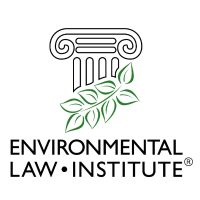
"The recipients of the 2017 Awards are on the fore-front of protecting wetland resources in the face of climate change and development," said ELI President Scott Fulton. "Through their dedication and achievements, they inspire wetlands protection across the country and worldwide."
Dana Pounds, Executive Director, President and Founder of Nature's Academy, an outdoor educational program made to enhance science literacy and foster environmental stewardship is being recognized for outreach & education. She developed a suite of experiential learning programs that integrate STEM (science, technology, engineering, math), Common Core and Florida Sunshine State Standards. By offering "eventures" at no cost, Pounds has successfully extended these programs to local low-income, minority students from underserved schools in Manatee County. Now, nearly every fifth grader in the county has access to Nature Academy's outdoor science education. Through her decade of work with Nature's Academy, she has engaged more than 50,000 students, teachers, and chaperones from 41 states and four countries to become guardians of wetlands.
Other awardees will be:
- Conservation & Restoration: Gregory Kearns (Upper Marlboro, MD) is a park naturalist for the Maryland-National Capital Park and Planning Commission.
- Science Research: Dr. Robert R. Twilley (Baton Rouge, LA) is the Executive Director of the Louisiana SeaGrant programs and a Professor at Louisiana State University.
- State, Tribal, and Local Program Development: Collis Adams (Concord, NH) is the Administrator of the New Hampshire Department of Environmental Services Wetlands Bureau.
- Wetlands Community Leader: Alicia Mozian (Westport, CT) is the Founder and Chair of the Sasco Brook Pollution Abatement Committee in the Town of Westport.
|
 The Gulf of Mexico Alliance announced a new partnership with Anadarko Petroleum Corporation (NYSE: APC) to invest in projects that support a healthy and productive Gulf of Mexico. The oil and natural gas producer is the newest member of the Alliance's Gulf Star Program, created in 2015 as a public-private partnership to fund critical projects in the Alliances' Governors' Action Plan III. Anadarko joins the Alliance's 2017 efforts to support projects that invest in a healthy Gulf of Mexico. The Gulf of Mexico Alliance announced a new partnership with Anadarko Petroleum Corporation (NYSE: APC) to invest in projects that support a healthy and productive Gulf of Mexico. The oil and natural gas producer is the newest member of the Alliance's Gulf Star Program, created in 2015 as a public-private partnership to fund critical projects in the Alliances' Governors' Action Plan III. Anadarko joins the Alliance's 2017 efforts to support projects that invest in a healthy Gulf of Mexico.
In 2016, the Alliance awarded over $630,000 supporting 19 projects across 7 critical Gulf issues. Plans are underway to issue another round of projects in late 2017. Anadarko's approach to social investment is about more than writing a check, as the company seeks to collaborate with organizations to serve the needs of the region.
|
Interested in what the Harte Research Institute for Gulf of Mexico Studies 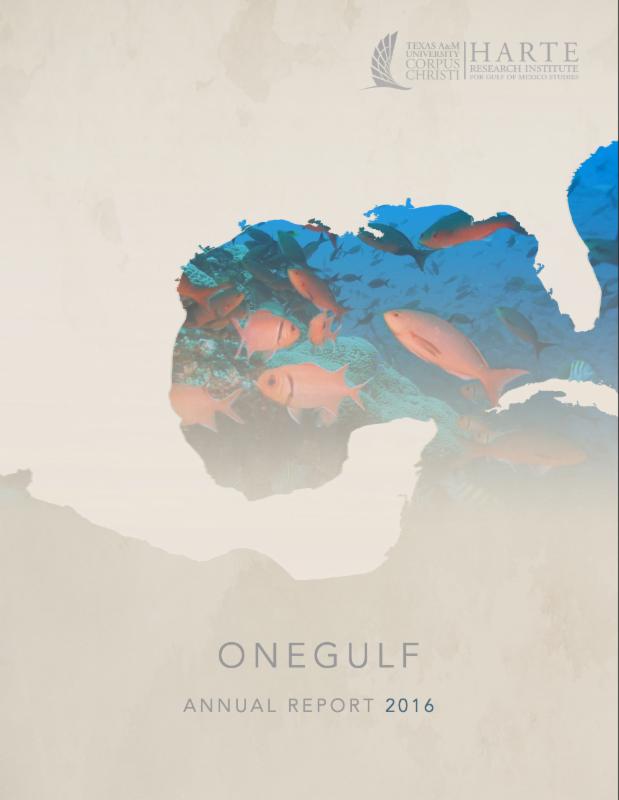 has been up to? They've recently released their latest annual report, a full-color, 32-page wrap up of people, programs and projects. has been up to? They've recently released their latest annual report, a full-color, 32-page wrap up of people, programs and projects.
The issue includes a story about EarthCube, a project that is helping us better understand the data collected about the Gulf of Mexico. The project's co-lead, Felimon Gayanilo, is a senior HRI researcher as well as GCOOS' systems architect.
You can also learn about how HRI's RESTORE Center of Excellence, Texas OneGulf, moved from planning to implementation, and how the consortium is already making a difference in understanding the Gulf by aiding the investigation of the mortality event at the Flower Gardens National Marine Sanctuary's East Bank.
|
DWH Anniversary Coming Up
|
April 20 will mark the seventh year since the Deepwater Horizon oil rig exploded in the Gulf of Mexico, killing 11 men and injuring 17 others. The spill's effects -- both on humans and our 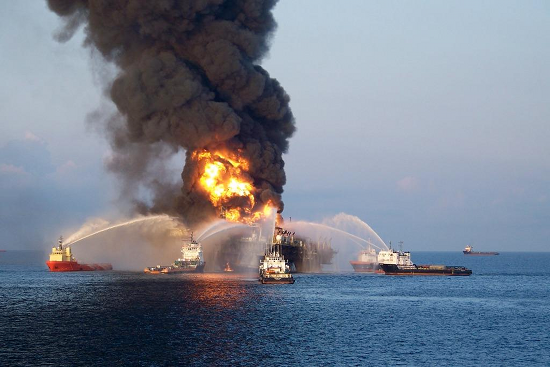 environment -- are still top of mind for many Gulf communities. The DWH spill was a recent topic of on two NPR radio shows: Science Friday and Living on Earth. environment -- are still top of mind for many Gulf communities. The DWH spill was a recent topic of on two NPR radio shows: Science Friday and Living on Earth.
Science Friday
HRI's Larry McKinney was a guest on this recent SciFri episode that was focused on the aftermath of the Deepwater Horizon Oil Spill. The episode featured the play
Spill, Leigh Fondakowski's 2015 play about the 2010 Deepwater Horizon explosion and oil spill.
Living on Earth
This recent segment featured C-Image and the team of scientists from the U.S. and Mexico studying the ocean floor near the site of the Ixtoc oil well blowout. "The Ixtoc site is perched on the edge of a marine canyon like Deepwater Horizon is. Deepwater Horizon was at the bottom of a marine canyon," Steve Murawski, one of the lead scientists for the Center for Integrated Modeling and Analysis of the Gulf Ecosystem, or C-IMAGE, told Living On Earth reporter David Levin. Murawski says research on the 2010 spill can tell scientists only how oil is affecting the environment right now. Predicting its future impact is much harder. But since Ixtoc is so similar and it happened nearly 40 years ago, he thinks returning to the Mexican site could tell scientists what to expect near the Deepwater Horizon in the years ahead.
|
|
The Open Ocean Trustee Implementation Group is planning restoration activities for the 2017-2020 planning years and is looking for input in the Open Ocean Restoration Area. The group is hosting a webinar from noon to 1:30 p.m. EST Thursday, April 27 to describe the NRDA restoration planning process, request for project ideas and next steps for the Open Ocean Restoration Area.
The Trustee Implementation Group is targeting restoration for wide-ranging and migratory species at important points during their life cycles and geographic ranges, including inland, coastal and offshore areas.
The deadline for submitting project ideas is May 15, 2017.
|
Louisiana Coastal Restoration
|
|
Gov. John Bel Edwards urged the Louisiana Legislature on March 27 to approve the 2017 update of the state's $50 billion, 50-year master plan for coastal restoration and hurricane protection. He also backs the $644 million annual plan that provides a budget for master plan projects.
|
Restoration Funding Calendar
- NOAA RESTORE Act Science Program hosts a three-year calendar that consolidates planned funding opportunities
By State:
|
Postdoctoral Fellowship: Human Dimensions of Great Lakes Harmful Algal Blooms
|
|
A postdoctoral fellowship is available at the Cooperative Institute for Limnology and Ecosystems Research (CILER, http://ciler.snre.umich.edu/) to work on the human dimensions of harmful algal blooms in the Great Lakes. The successful applicant will work with a team of scientists at CILER and the NOAA Great Lakes Environmental Research Lab (GLERL, https://www.glerl.noaa.gov/) to perform primary research that extends biophysical models of harmful algal blooms and their impacts on nearshore water quality and hypoxia, with social dimensions that predict human behavioral responses to HABs or their impact on coastal communities. In addition to primary research, the successful candidate will oversee outreach and stakeholder engagement efforts that facilitate the co-design of research between stakeholder groups/ local water managers and scientists, and that help translate research and model development into socially useful forecasting tools.
CILER is one of 16 Cooperative Institutes in the United States that represent partnerships between NOAA and academic institutions. Since 1989, CILER has been hosted by the University of Michigan in Ann Arbor, Michigan, where it is collocated with its sponsor, NOAA-GLERL. CILER's mission is to help government researchers at NOAA-GLERL accomplish their research in the Great Lakes by enhancing collaborations with academic scientists at U of M, as well as other institutions throughout the Great Lakes.
The postdoctoral fellowship offers a highly competitive salary with benefits, and the position will be physically located at NOAA-GLERL in Ann Arbor, which is routinely ranked as one of the best places to live in the U.S. due to its affordability, natural beauty, preservation of wooded areas, vibrant arts program, and lively downtown landscape.
Applicants must have a Ph.D. in some area of social science, experience working with natural scientists, an excellent record of publication, and strong quantitative skills. Prior experience working in freshwater is preferred, but not required. The initial appointment will be for one year, with continuation of funding available contingent on satisfactory progress on research goals. Applications are due April 21st.
To apply, email a cover letter stating your research accomplishments and interests, a curriculum vitae, two representative publications, and the names and contact information for three references to:
Bradley J. Cardinale
Professor, School of Natural Resources & Environment
Director, Cooperative Institute for Limnology & Ecosystems Research
University of Michigan
Email: [email protected]
|
Roffer's Ocean Fishing Forecasting Service, Inc.
|
Scientific consulting company (Roffer's Ocean Fishing Forecasting Service, Inc. - ROFFS™,
West Melbourne, Florida) is looking for a self-motivated, investigative, reliable, positive, and energetic
person that will flourish in a challenging deadline and production oriented environment. Candidate
should be a self-starter and team player. Position involves processing and analyzing satellite derived
oceanographic data (infrared, ocean color, altimeter, etc.), in-situ oceanographic data and model
output for several applications including deriving daily oceanographic fishing forecasting analyses
(will train).
ROFFS™ provides products for private industry (e.g., recreational and commercial fishing industries,
oil & gas industry), government, and non-governmental organizations. ROFFS™ also collaborates
with researchers from the private, government academic and NGO sectors and is involved in NASA,
NOAA, IOOS, and other research projects. This is primarily an operational - production position, but
research, development, and marketing are part of the activities. See www.roffs.com for more details.
Experience with PC and Mac operating systems, image enhancement, Adobe Photoshop™,
ArcGIS™, IDL/ENVI™, R, and MATLAB™ is advantageous. Having degrees (BS, BA, MS, or Ph.D.)
in oceanography, meteorology, engineering, or other scientific field is to your advantage. Knowledge
or experience with fishing, ocean navigation, ship routing, geography, scientific writing, graphic
design, satellite remote sensing, and boating is beneficial. Non-smoker only. Medical, vacation and
retirement benefits included.
Must be a United States citizen or on track for nationalization only (work or student visa, green card,
or permanent resident) and will have to re-locate to West Melbourne, Florida. Entry level or advanced
person position. Salary $40k - $50k range starting commensurate with experience and skills. Paid
overtime, bonuses, and advancement are likely.
Send cover letter with names of three people for recommendations along with resume/vita to
[email protected] address using "Satellite Oceanographer Position" in the subject line. No mailed or
hand-delivered documents will be accepted. Application open until filled. Position will start as soon as
possible.
|
May
ArcGIS 10.3.1
, May 1-4: Florida Sea Grant and the University of Florida IFAS Extension invite you to register for a premier 3.5-day intensive workshop on ArcGIS 10.3.1, a powerful tool for managing natural resources and guiding growth and development.
3rd Blue Planet Symposium: Dates have changed
The Symposium will serve as a forum for discussion of societal information needs resulting from the important role the ocean plays in Earth's life-support system and the challenge of minimizing the impacts of human activities on the oceans while utilizing the resources of the oceans to meet our needs.
- Details
- College Park, MD, May31-June 2, 2017
Gulf of Mexico Climate Community of Practice Annual Meeting, bringing together extension, outreach and education professionals with community officials in the Gulf to learn how coastal communities can adapt to sea-level rise, precipitation changes and other climate-related issues. May 16-18, 2017, Covington, Louisiana
June
June 18-23, 2017, Stonehill College, Easton, Mass.
The 2017 Gordon Research Conference (GRC) on Mycotoxins and Phycotoxins will provide a forum for academic, government and private sector scientists to exchange ideas on harnessing advances in biology, chemistry, ecology, plant pathology, epidemiology and risk assessment to address the problems associated with occurrence of these natural toxins.
Other Gulf-Related Events
Have a meeting, job or funding announcement? Please email details to Laura Caldwell at GCOOS.
|
|
|
|
|